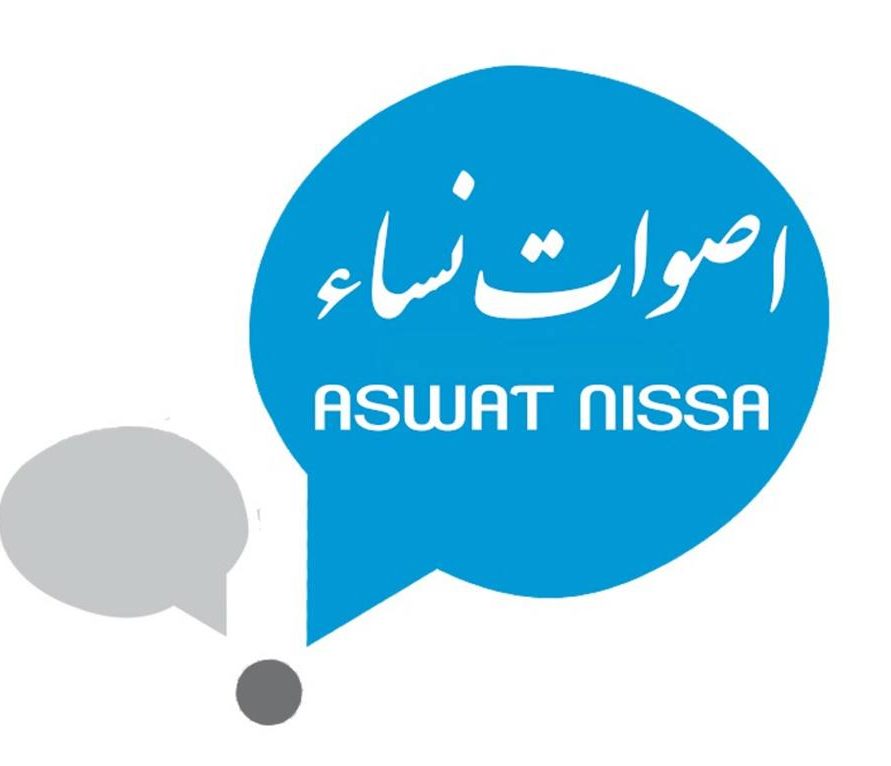Women’s Political Academy 2018
Women’s Political Academy 2018

Aswat Nissa, along with its partners Kvinna till Kvinna and Heinrich Böll Stiftung, launched on March 2018 its 7th Women’s Political Academy that gathered twenty young women aged between 18 and 35 years old from different regions and from ten different political parties. This program aimed to prepare these women for the first municipal elections in the country since the 2011 Revolution. The training provided them with the necessary tools to become active agents of change, and engaged activists for gender equality (by integrating this concept within local public policy) within their political party and their community.
The 2018 Women’s Political Academy revolves around nine different components that aim as a whole to transform these candidates into true spokespeople for women’s rights and struggles:
Leadership and Decision-Making
Local Governance and Decentralization
Political communication with a simulated televised debate
Gender and Gender Equality
Gendered analysis of legislation
Integration of Gender within Public Policy
Gender-sensitive Budgeting
Women’s Role in Fighting Corruption
Advocating for the integration of gender within public policy (gender mainstreaming)
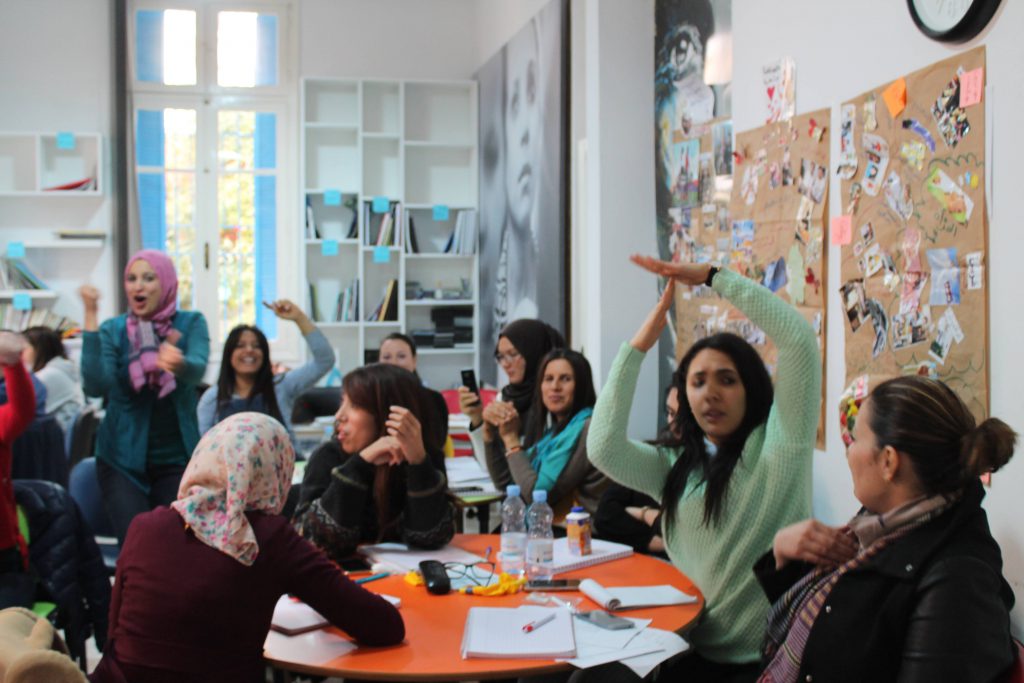
Leadership and Decision-Making
To stimulate the women’s leadership is one of the pillars of the Women’s Political Academy. To reinforce their leadership skills, the training wished to help them identify the obstacles that might impede their self-confidence and help them envision their political goals. The training was given by Lilia Baccouche, a psychologist and coach, and took place on the 10th and 11th of March 2018.
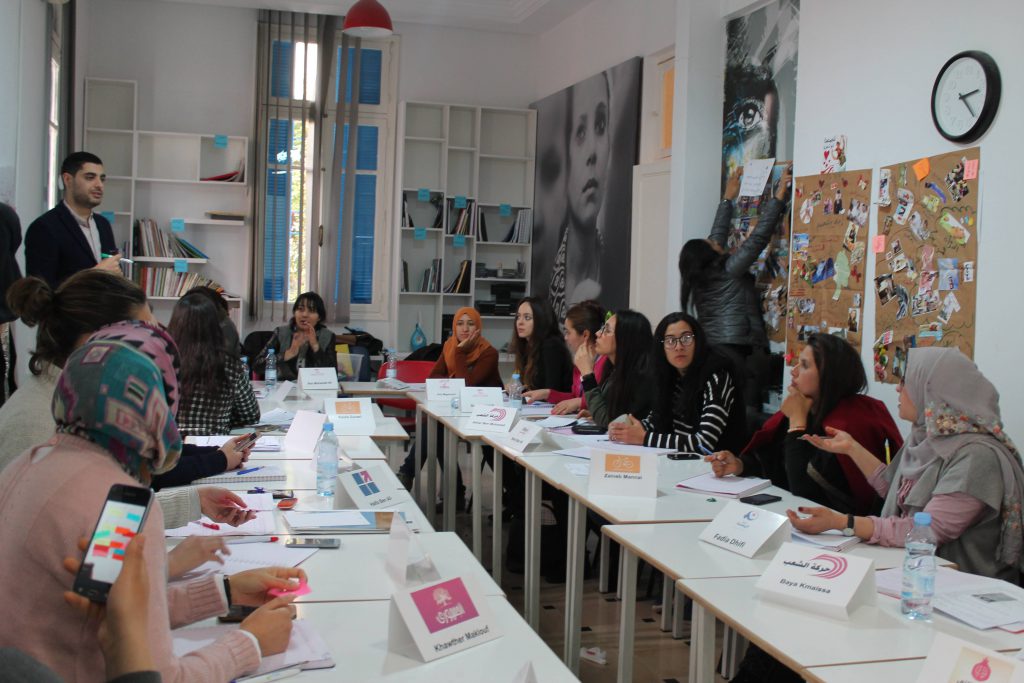
Local Governance and Decentralization
The three-day training on « Local Governance and Decentralization » was given by Zied Boussen, a researcher on local governance. This training allowed the participants to understand the underlying mechanisms of local elections, as well as the importance and the challenges facing a municipal council. This training’s objective was to prepare candidates for their role as elected politicians at a local level, and to prepare them to face the electorate’s expectations.
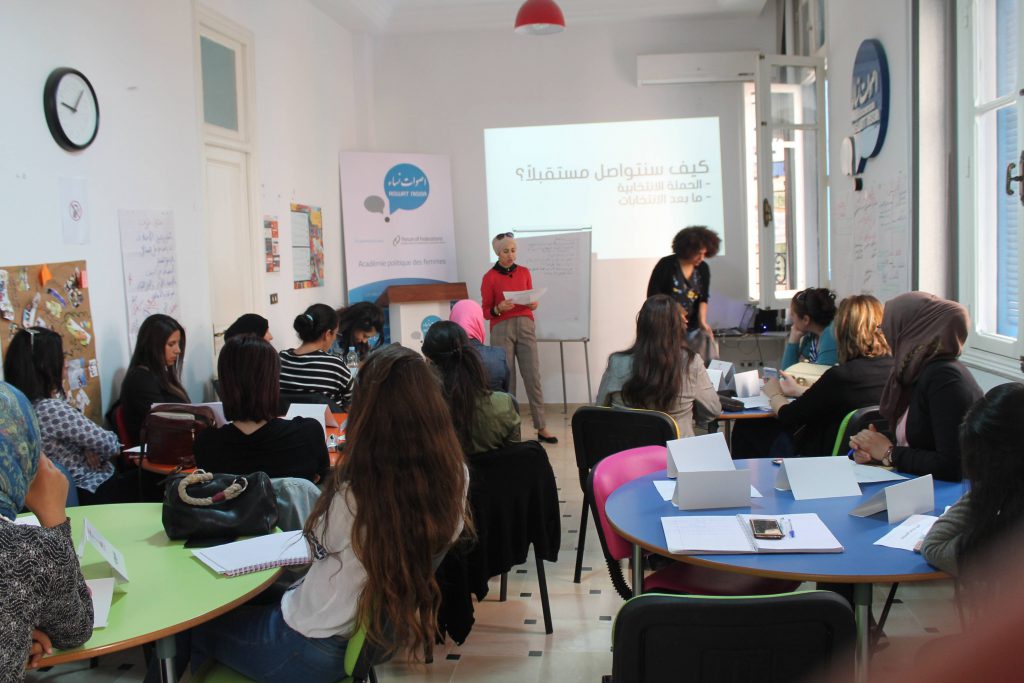
Political communication
Candidates had the opportunity to work on their political speeches with a specialized training on political communication and public speaking. For three days, candidates worked on different communication strategies and learnt how to adapt them depending on the type of media (social media, print, electronic media, television, radio, etc.). Candidates also worked on articulating clear and convincing messages through different argumentative techniques. A simulated televised debate was organized to allow the candidates to practice structuring their political discourse and adapting it to their audience.
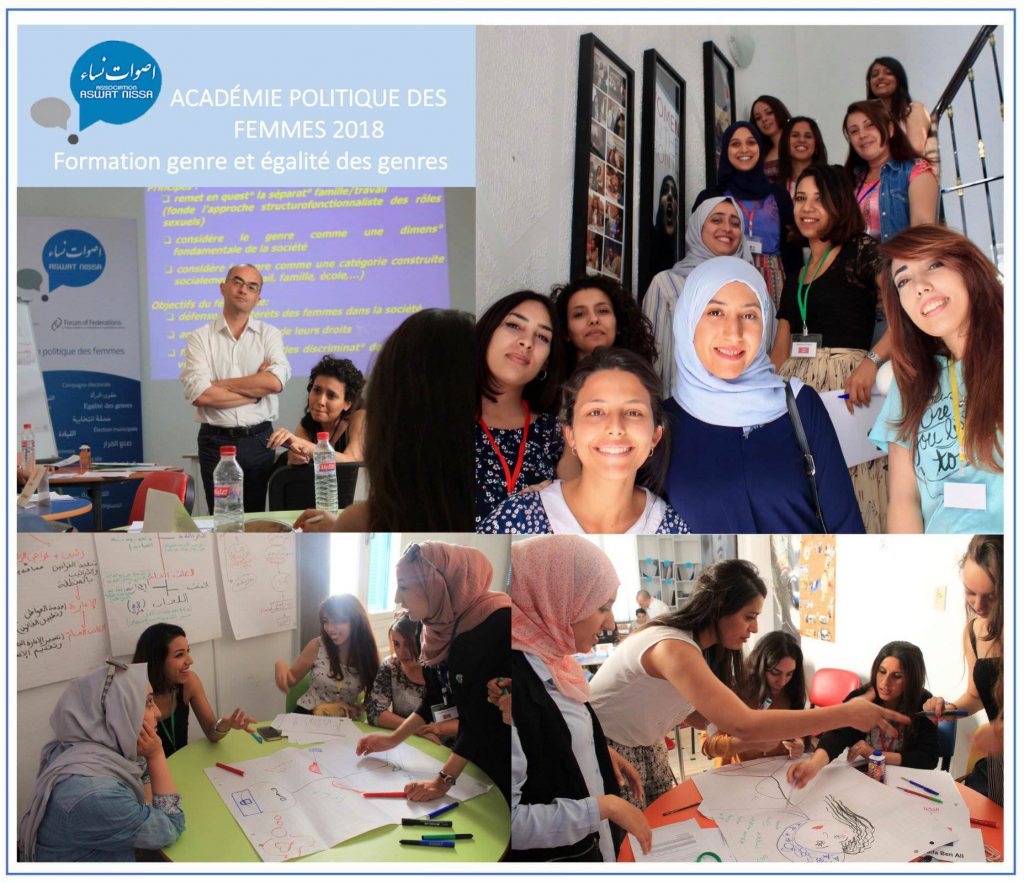
Gender Equality
The ‘Gender Equality’ workshop was certainly one of the most crucial training within the political Academy. For two days, the candidates deepened expanded their knowledge and were made aware of the concept of gender and of its link with the individual and society. They became capable of differentiating gender and sex, and were sensitized to female and male stereotypes. They also became able to analyze how politics, education and the economy can all entrench stereotypes and discrimination based on gender.
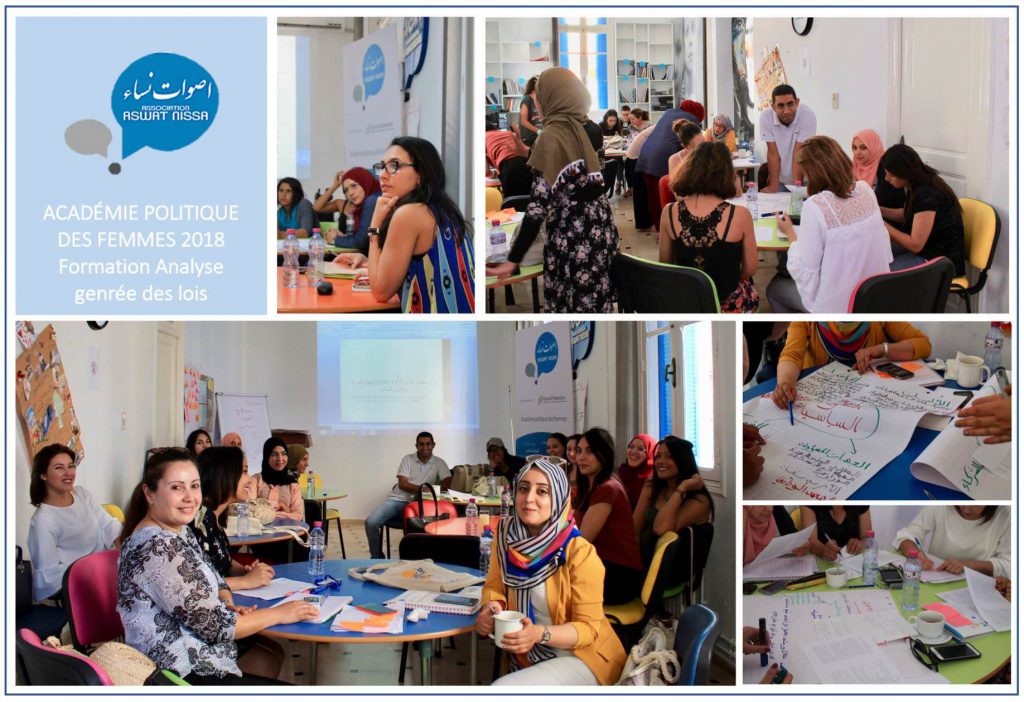
Gender and law analysis
Following the workshop on gender equality, candidates gathered once again to follow a training on law analysis and on the integration of gender within legislation. Under the guidance of Professor Khaled Mejeri, the candidates reviewed many Tunisian laws and legal institutions and explored how these laws impact Tunisian women’s lives. The participants also discussed the 1325 National Action Plan to implement the UNSCR1325 adopted by Tunisia along with the report by COLIBE on individual freedoms and equality.
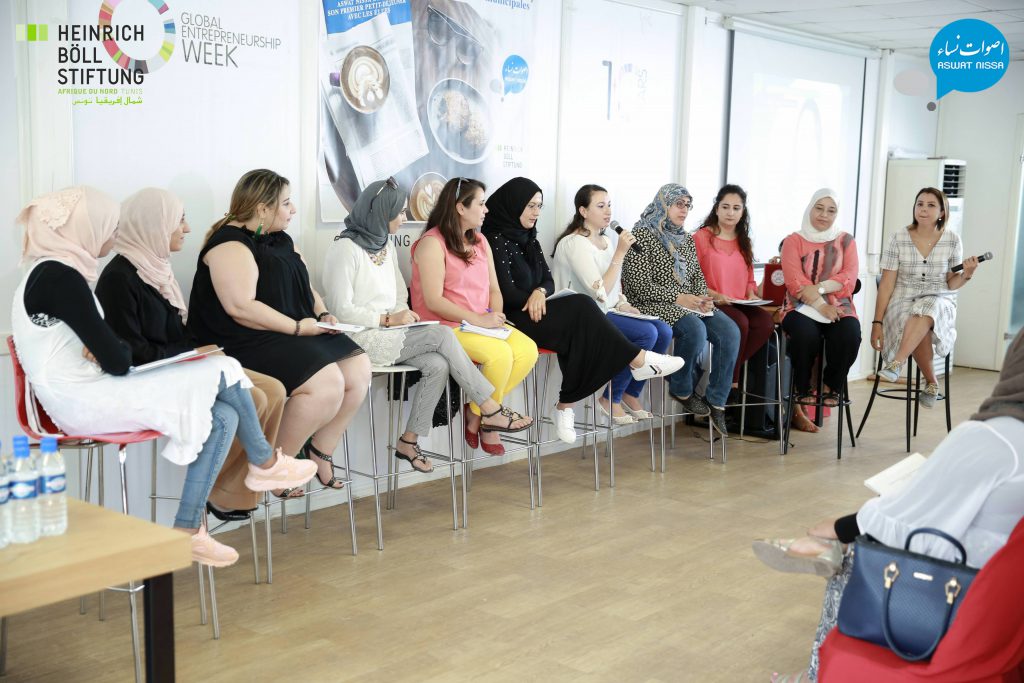
Breakfast with the young female municipal representatives
To celebrate the 62th anniversary of the Code of Personal Status, Aswat Nissa (in collaboration with Heinrich Böll Stiftung North Africa) organized a breakfast with the young municipal representatives of different editions of the Women’s Political Academy to discuss their role in the integration of the gender approach for the management of local affairs. The young elected representatives, that all lead different municipal commissions, shed light on the numerous obstacles they face, such as the lack of financing and corruption, and underlined the importance of local affairs for Tunisian women. According to these local representatives, it is mostly women that demand better municipal services (such as lighting, infrastructure, security, cleanliness, leisure spaces…). Having sat on the commission responsible for drafting the Local Authorities Code, MP Lilia Ksibi underlined the fact that integrating the gender approach could be an opportunity for localities to receive additional funding.
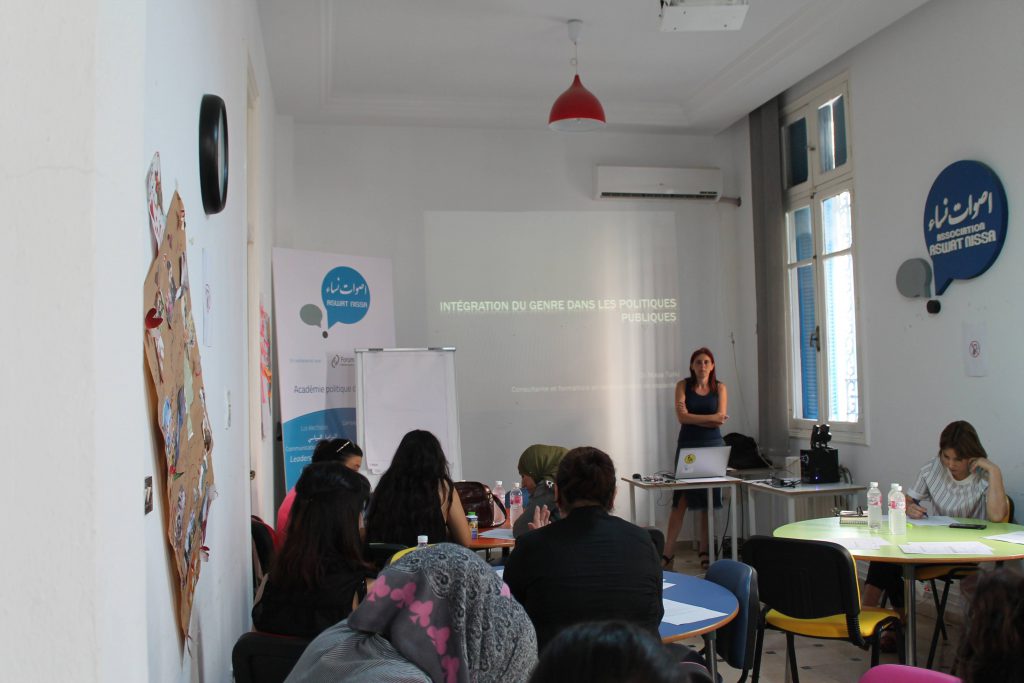
Integrating the Gender Approach Within Public Policy
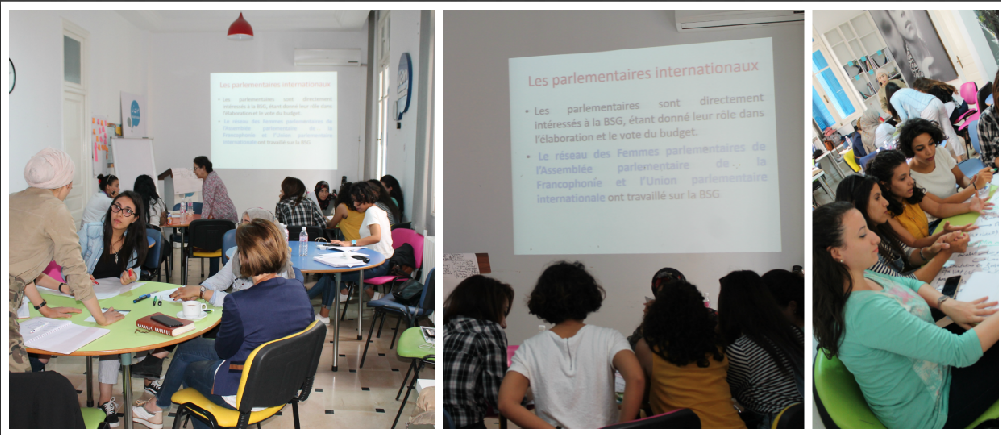
Gender-Sensitive Budgeting
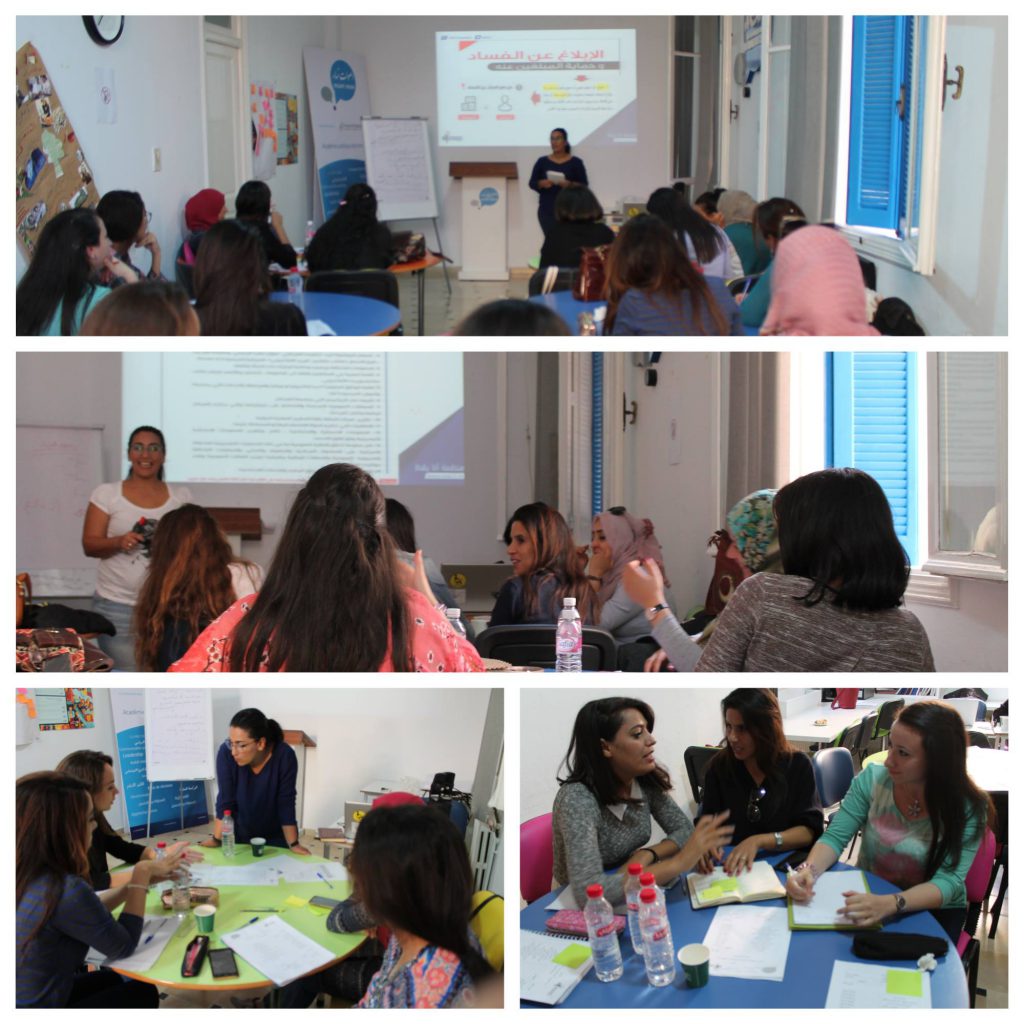
Transparency and Women’s Role in Fighting Corruption
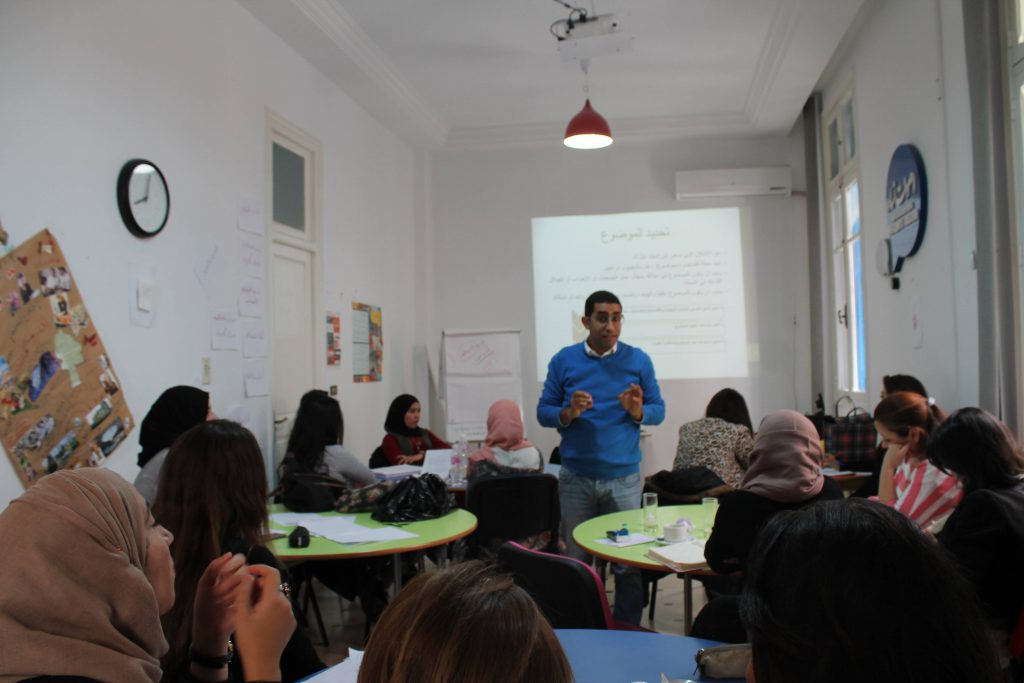
A Plea for the Integration of Gender within Public Policy
The ultimate training given within the 7th Women’s Political Academy was a plea for the integration of gender within public policy. The candidates became familiar with different advocacy tools and acquired the skills necessary to lead a plea on the Tunisian political stage and within their own party. The objective was to help them become true activists for the integration of gender.
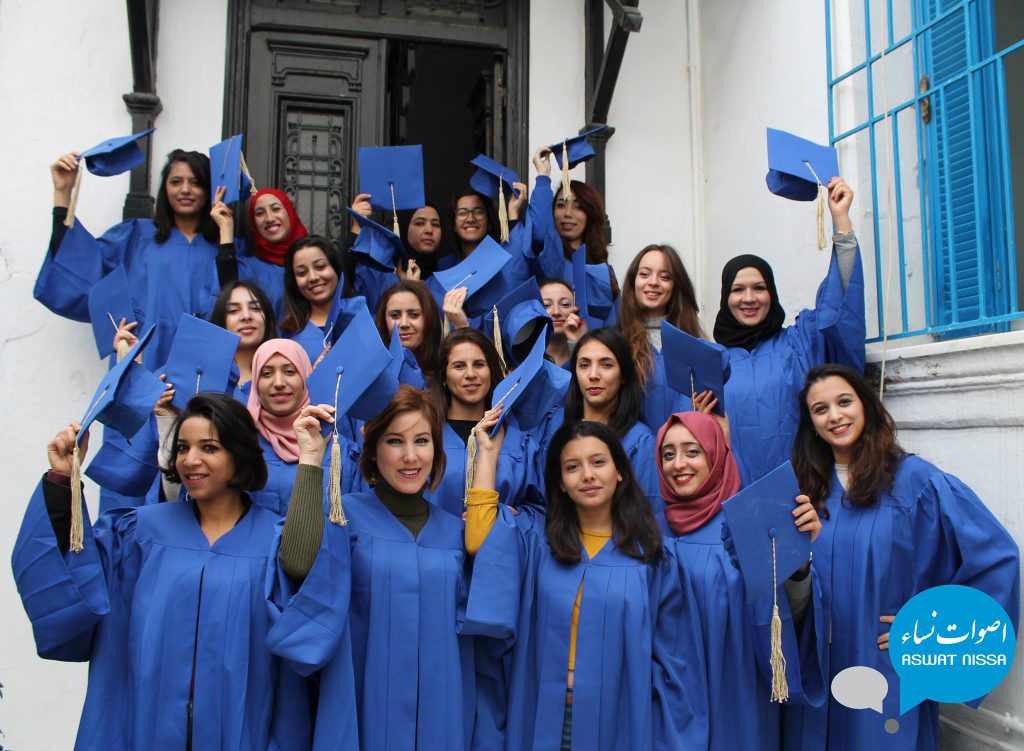
Closing ceremony of the Women’s Political Academy
After almost a year of work and training, Aswat Nissa ended the 7th Women’s Political Academy with a graduation ceremony. This event celebrated the success of the cohort that had gathered twenty young women politicians aged between twenty and thirty-five years old from different regions and from ten political parties. Seven of these women became municipal representatives. Aswat Nissa wishes them great success within their municipalities and their political parties, and wishes them to continue to be actors of change.
Good Practices for the Integration of Gender within Political Parties
On the 18th of December 2018, Aswat Nissa presented its study entitled “Good Practices for the Integration of Gender within Political Parties” prepared through a documentary research and a gathering of quantitative and qualitative data from forty politically-involved women aged between 20 and 43 years old.
The study provided a portrait of women’s political participation in Tunisia. In fact, this study proved that patriarchy, family responsibilities and insecurity in public transport, especially during the night, are the main impediments to female success in politics. The study also presents long and short-term recommendations.
You may consult the study by clicking on this link:
